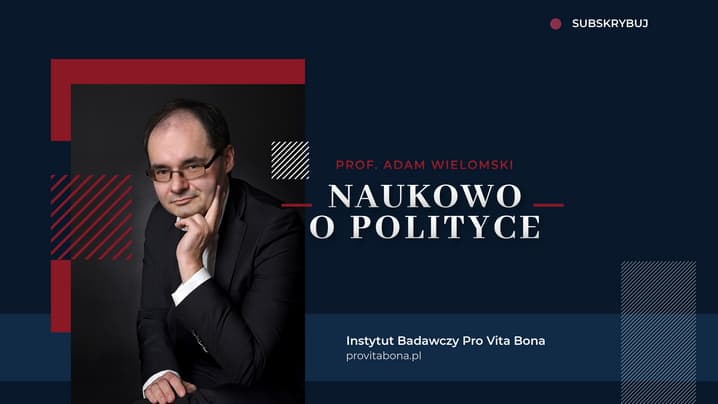There are so many different societies on the planet today. The possibilities of traditionalism or conservatism vary greatly across all of them. Having lived in Toronto, Ontario, Canada for nearly his entire life, the author of this article is intimately familiar with Canadian history, politics, and culture, and can offer what he thinks is maximally possible for conservatism, in the Canadian context today.
One should begin with an examination of the reasons for the Conservative failure in the Canadian federal election of September 20, 2021, and some general insights that can be derived therefrom. In the author’s opinion, the attempted “move to the centre” to try to win over blue-collar, as well as suburban and urban voters, especially in Ontario, Quebec, and B.C., was a good idea. However, it was hobbled by the policy delineated in the Plan (the detailed Conservative electoral platform) to rescind the Liberal anti-assault rifle Order-in-Council, which the Liberals were able to zero in on with a laser-like intensity. It was also weakened by Conservative leader Erin O’Toole’s refusal to come on board with vaccine mandates – which also became a huge target for the Liberal campaign. These two matters were wedge-issues which generated huge support for the Liberals. If the Conservative Party was going to “move to the centre” these two matters should have been appropriately addressed.
Delineated below are the some of the main possible policy planks of the Conservative Party of Canada in future elections.
The obvious fiscal irresponsibility of the current Administration may lead to a virtual economic collapse in a matter of years. The CPC should be leading a crusade against the fiscal profligacy of the current Administration.
In the Canadian context, the author accepts that abortion rights and same-sex marriage are an indelible part of the Canadian political landscape today. Nevertheless, he believes that it is possible to promote pro-family policies (especially through the tax-system) that can win broad acceptance in Canadian society today. For example, the tax-penalty on households with one main breadwinner in the marriage, should be ended.
The author believes that significant efforts should be directed towards enunciating and promoting a “Green Conservatism.” Conservation issues and the defence of the environment should not be left to opponents of the CPC. Therefore, some kind of carbon pricing should be supported.
The author believes that the excesses of multiculturalism and very high immigration policies, as being promulgated by the current Administration, are vulnerable to criticism. The need for the promotion of Canadian values among immigrants, could be given serious consideration. There is also an ecological argument that can be made for reducing immigration levels.
The author also believes that the dangerous weakening of the Canadian military and security assets under the current Administration, could be an effective point of criticism. Military spending should be raised to the recommended NATO levels.
The exercise of foreign policy has long fallen under the paradigm of “soft power” – with development aid the preferred instrument of policy. Some Canadians imagine they are seen as a uniquely virtuous nation in many parts of the Third World, on account of their “do-gooder” policies. It is more likely they are simply seen as credulous “suckers.” Therefore, the foreign aid budget should be substantially lowered.
There is also the near disappearance of praise for real masculinity, and the devalourizing of the military and the police in Canada’s general culture. Canada has one of the lowest percentages of men under arms ever seen in human history. Funding for the police and the military should be increased, and they should be supported as much as possible in the general culture.
Some further attention should be paid to broader cultural issues. There is today in Canada a massive cultural fracturing, under the pressures of the American pop-culture, of the extremes of multiculturalism, and of excessive Aboriginal claims. Ironically, the greatest champions of Canadian culture today are also usually mavens of “political correctness.” The core Canadian identity is in danger of disappearing, “the centre cannot hold”, only the so-called fringes are powerful today. The goal would be to re-orient cultural funding to give more voice to core Canadian identity, and core Canadian culture and history.
Also, the climate in the Canadian academy today (especially in the humanities and social sciences) has become unbearably “woke”, devoted to identity politics, and intersectionality. Non-woke voices are frequently silenced. There should be legislation to try to restore greater freedom of speech in the academy, and in society as a whole.
And there is the multifarious crisis of family and morality. It has been pointed out by various commentators that no matter how many rights and benefits a given society offers, it may still be considered a failing society, if it fails in the most essential task of reproducing itself – both in the purely physical as well as cultural sense. The government must therefore substantially increase the incentives for married couples to have or adopt children, through a variety of tax-policies.
Related to the crisis of morality is the triumph of the “permissive” society – the death of respect for legitimate authority and the sometimes absurdly lax operation of the criminal justice system. There should be a general tightening up of the legal system – as far as real punishments for real crimes – as opposed to the imagined offenses against “political correctness.”
All these ideas should be confidently and unflinchingly presented to the Canadian public by a Conservative leadership who are effective communicators. It is only by challenging the currently-regnant left-liberalism in the areas where, in the author’s opinion, it is most vulnerable, that significant electoral victories and changes in policy could eventually happen.
Mark Wegierski



